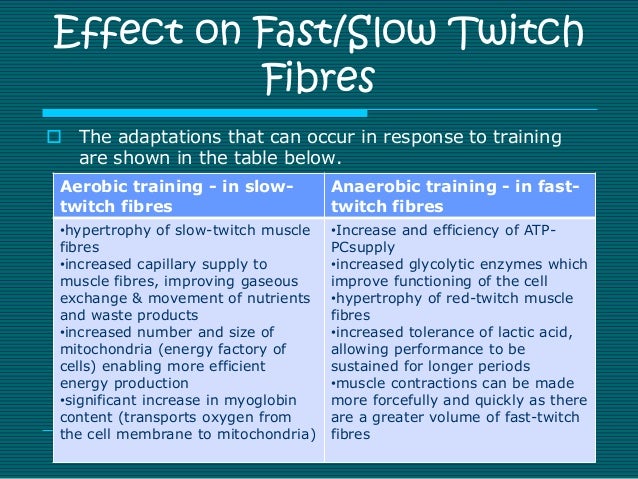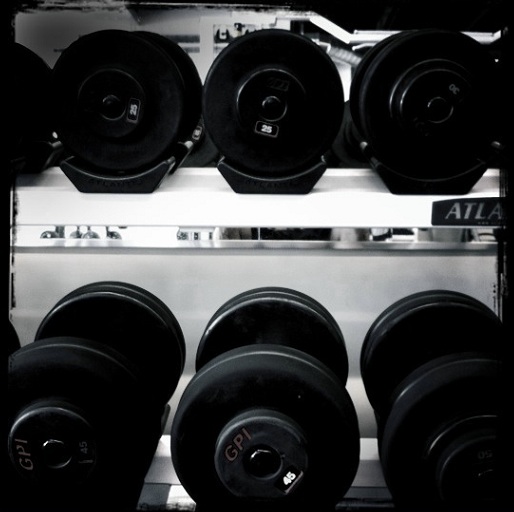As stated earlier, anatomical adaptation exercises and drills can be manipulated to suit the needs of the players. Work capacity is a goal in the opening weeks. Anatomical adaptation workouts.
Anatomical Adaptation Workouts, • explanation of each phase and workout content within the excel spreadsheets. Anatomical adaptation training is convenient in the cts method approach for three reasons: Then you finish the cycle with a gap workout that uses isolation exercises for muscles that might be lagging or aren�t getting properly stimulated by the big basic lifts. The focus on training should be placed on many bodyweight exercises and circuit training using weights and.
 Adaptations to Exercise Cardiovascular System 07 From youtube.com
Adaptations to Exercise Cardiovascular System 07 From youtube.com
Gradually adapt to heavier loads. Anatomical adaptation (aa) phase this is the initial phase of strength training which usually occurs in the late fall or early winter during the prep period. Changes to one or more of the bodies systems as result of long term consistent stimulus, such as exercise. Flutter kick down, breaststroke arms with a buoy between your legs and head up, then jog back.
It also results in various physiological adaptations in the neuromuscular, cardiovascular and respiratory systems of the human body.
Read another article:
Such a routine would incorporate more exercises to prepare all the joints, ligaments and connective tissue for more intense training. Work capacity is a goal in the opening weeks. An immediate change (increase or decrease) in one or more of the bodies systems in response to a stimuli. Based on the athlete experience and athletic performance, an anatomical adaptation phase should last between four to eight weeks (or more for a novice). Anatomical adaptation (aa) phase this is the initial phase of strength training which usually occurs in the late fall or early winter during the prep period.
 Source: pinterest.com
Source: pinterest.com
It also results in various physiological adaptations in the neuromuscular, cardiovascular and respiratory systems of the human body. Become accustomed to the various exercises. The overload principle [edit | edit source]. Anatomical adaptation (aa) phase this is the initial phase of strength training which usually occurs in the late fall or early winter during the prep period. Pin on ejercicios.
 Source: bodybuilding-wizard.com
Source: bodybuilding-wizard.com
Changes to one or more of the bodies systems as result of long term consistent stimulus, such as exercise. Work capacity is a goal in the opening weeks. An immediate change (increase or decrease) in one or more of the bodies systems in response to a stimuli. The anatomical adaptation phase is the recommended starting point for conditioning players (bompa, 2000). Exercise Selection How to choose the right exercises.
 Source: slideshare.net
Source: slideshare.net
Anatomical adaptation training is convenient in the cts method approach for three reasons: Its purpose is to prepare the muscles and tendons for the greater loads of the heavier maximum strength phase. The focus on training should be placed on many bodyweight exercises and circuit training using weights and. Moderate intensity for long duration (typically referred to as aerobic base) 2 x/wk. Chronic adaptations to resistance training.
 Source: slideshare.net
Source: slideshare.net
Become accustomed to the various exercises. So what i need to incorporate in the session are: This 5 day workout program will get the tendons and ligaments ready for an increased workload and will correct any current muscle imbalances. As stated earlier, anatomical adaptation exercises and drills can be manipulated to suit the needs of the players. Chronic adaptations to resistance training.
 Source: myphenomfitness.com
Source: myphenomfitness.com
Changes to one or more of the bodies systems as result of long term consistent stimulus, such as exercise. The focus on training should be placed on many bodyweight exercises and circuit training using weights and. The exercises selected from the screen (as outlined in table 4) can be incorporated into the anatomical adaptation training programme. Anatomical adaptation (aa) prep and/or early base 1: Anatomical Adaptation A Workout For Beginners My Phenom.
 Source: kayafitness.co
Source: kayafitness.co
Anatomical adaptation focuses mainly on ensuring stability, mobility and general strength throughout the body. Maintain the strength gains made in ms. These adaptations can improve physical performance. The exercises selected from the screen (as outlined in table 4) can be incorporated into the anatomical adaptation training programme. How Does Cardiorespiratory Endurance Affect Physical.
 Source: pinterest.com
Source: pinterest.com
Anatomical adaptation (aa) prep and/or early base 1: Its purpose is to prepare the muscles and tendons for the greater loads of the heavier maximum strength phase. Work capacity is a goal in the opening weeks. Make sure to perform this anatomical adaptation workout routine for about 4 weeks before jumping into another workout. COMPOUND CIRCUITS is a 4week total body workout plan.
 Source: workoutsprograms.com
Source: workoutsprograms.com
Based on the athlete experience and athletic performance, an anatomical adaptation phase should last between four to eight weeks (or more for a novice). An immediate change (increase or decrease) in one or more of the bodies systems in response to a stimuli. Max transition (mt) prep and/or base 1: Its purpose is to prepare the muscles and tendons for the greater loads of the heavier maximum strength phase. Anatomical adaptation Day 1 Exercises, workouts and.
 Source: slideshare.net
Source: slideshare.net
A reduced risk of injury; As stated earlier, anatomical adaptation exercises and drills can be manipulated to suit the needs of the players. Anatomical adaptation (aa) prep and/or early base 1: Gradually adapt to heavier loads. Physiological adaptations in response to aerobic training.
 Source: heliocentricity.info
Source: heliocentricity.info
It also results in various physiological adaptations in the neuromuscular, cardiovascular and respiratory systems of the human body. Maintain the strength gains made in ms. Anatomical adaptation (aa) prep and/or early base 1: Become accustomed to the various exercises. Exercise.
 Source: youtube.com
Source: youtube.com
Improved range of motion or flexibility development Make sure to perform this anatomical adaptation workout routine for about 4 weeks before jumping into another workout. Become accustomed to the various exercises. An immediate change (increase or decrease) in one or more of the bodies systems in response to a stimuli. Chronic adaptations to exercise YouTube.
 Source: pinterest.es
Source: pinterest.es
Such a routine would incorporate more exercises to prepare all the joints, ligaments and connective tissue for more intense training. Its purpose is to prepare the muscles and tendons for the greater loads of the heavier maximum strength phase. Then you finish the cycle with a gap workout that uses isolation exercises for muscles that might be lagging or aren�t getting properly stimulated by the big basic lifts. Become accustomed to the various exercises. Top 8 Leg Workout ANATOMY Strength training anatomy.
 Source: slideserve.com
Source: slideserve.com
Based on the athlete experience and athletic performance, an anatomical adaptation phase should last between four to eight weeks (or more for a novice). An immediate change (increase or decrease) in one or more of the bodies systems in response to a stimuli. This will allow for ample time to allow your body to adapt to a lifting regimen and will prevent. Its purpose is to prepare the muscles and tendons for the greater loads of the heavier maximum strength phase. PPT Vascular Adaptations to Exercise PowerPoint.
 Source: myphenomfitness.com
Source: myphenomfitness.com
The exercises selected from the screen (as outlined in table 4) can be incorporated into the anatomical adaptation training programme. • explanation of each phase and workout content within the excel spreadsheets. Max strength (ms) base 1 (and possibly going into base 2) build strength. Regular exercise is an effective way to maintain health. Anatomical Adaptation A Workout For Beginners.
 Source: youtube.com
Source: youtube.com
Then you finish the cycle with a gap workout that uses isolation exercises for muscles that might be lagging or aren�t getting properly stimulated by the big basic lifts. Anatomical adaptation focuses mainly on ensuring stability, mobility and general strength throughout the body. It also results in various physiological adaptations in the neuromuscular, cardiovascular and respiratory systems of the human body. Gradually adapt to heavier loads. Adaptations to Exercise Cardiovascular System 07.







